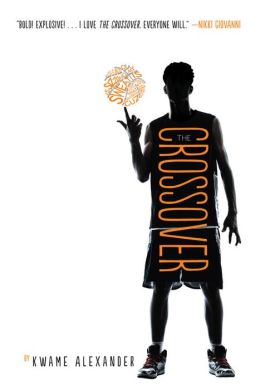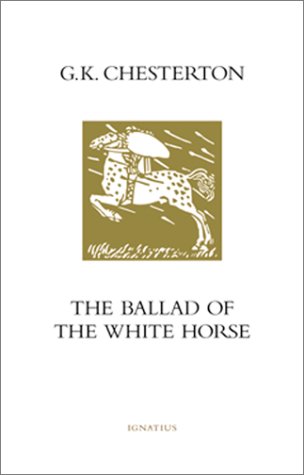Epic Poetry in School
Do you remember reading (or being assigned to read) one of the following in school?
- The Iliad
- The Odyssey
- The Aeneid
- Beowulf
Your teacher might even have assigned something like Longfellow’s The Song of Hiawatha or Evangeline. Perhaps you read Whittier’s Snowbound.
Are you shuddering yet?
Unfortunately, these lovely epic poems are often presented in school as follows: a fair-to-middlin’ introduction on the importance of said poem, a schedule of reading assignments, frequent comprehension quizzes, and analyzing the poem “to the pain” for its allusions, literary style, poetic techniques, and themes.
You, like me, may have assumed that epic poetry just wasn’t your thing, even if you love to read. After all, it was one of the more boring segments of high school English class. Right up there, for me, with the audio recording of Julius Caesar that droned on and on in my ninth grade English class.
Epic Poetry for Fun: a 5-Step Training Regimen
What if I told you there was a better way?
What if I told you there was a way that might even entice your kids to want to read a lengthy epic poem?
What if I told you that YOU might even want to pick up an epic poem and read it on your own?
My approach isn’t based on years of study, large samples of students, or a scholar’s research. This is simply based on my own family’s experience over the past 5 years–and the fact that all of my children, wildly different in personality and interest, have succumbed to the delights of poetry. Granted, their enthusiasm levels differ. But no one is afraid of poetry. No one groans at the mention of poetry. And everyone is chomping at the bit to read Beowulf this fall.
Step 1: Read Poetry
Sounds too obvious, doesn’t it? But it’s true. The more often you incorporate poetry into your natural reading life, the more natural poetry will seem to you and your children. Read a poem every morning at breakfast. Have a weekly teatime during which you read poetry. Just work it in. Try Megan’s guaranteed, irresistible, effortless introduction to poetry.
See also our Poetry Anthologies list for some favorite starting points.
Step 2: Enjoy Poetry
When you read poetry regularly with your children (step #1), don’t try to explain it or analyze it (the technical term is “explicate”). Just enjoy it. Did a particular line strike you? Mention that to your kids. Do you find that you enjoy the style of a particular book or author? Read more in the same vein. Ask your kids what they like. (hint: most kids really love funny poems)
Step 3: Level Up your Poetry Game
Once you’ve built a habit of reading poetry regularly, just for the fun of it, it’s time to level up your poetry game. Try reading a poet that is a bit harder to understand or more elevated, such as Gerard Manly Hopkins or John Donne. If you’ve only been reading silly poetry, try a more thoughtful children’s poet, like A. A. Milne or Robert Louis Stevenson. Try a longer poem or ballad, broken up over the course of several days. There are some great Robin Hood ballads. “The Highwayman” is another, longer favorite.
The Poetry for Young People Series is a good resource if you’re leveling up by reading the more established poets (as opposed to contemporary children’s poetry).
Step 4: Read Verse Novels

Novels-in-verse, or verse novels, are quite popular these days, but they are relative newcomers to the field. We’ve reviewed plenty over the years at Redeemed Reader. The poetry in these novels isn’t elevated or hard to understand. But reading verse novels can act like mental re-training: you won’t see a novel-length epic poem later and automatically write it off as “too hard.” After all, you’ve already read–and enjoyed–poems that same length! In fact, some children really love this format because of all the white space. Brevity is welcome in a sea of bloated children’s novels. Some good starting points:
- Gone Fishing by Tamera Wissinger (great for elementary ages!)
- Inside Out and Back Again by Thanha Lai (historical fiction)
- The Crossover by Kwame Alexander (a favorite of ours)
- Birdie by Eileen Spinelli (a quiet story)
- Garvey’s Choice by Nikki Grimes (great read about self respect)
Step 5a: Epic Poetry Training Wheels
By now, you (and your children) are no longer afraid of poetry. It might not be your favorite literary approach, but it shouldn’t be as far off and mysterious-sounding as it once was. Perhaps you and your children now have a favorite poem or poet, or you’ve read several verse novels and discovered a new favorite genre.
Before diving into a famous epic poem, read a really good summary of it. Having the overall plot in mind is tremendously helpful when poets wax eloquent; besides, knowing there’s a monster or an epic sea battle or some other exciting moment piques interest in the real deal. Some possibilities:
- The Iliad by Gareth Hinds (graphic novel retelling)
- Beowulf by Michael Morpurgo (illustrated retelling)
- Beowulf by Gareth Hinds (graphic novel retelling)
- Black Ships Before Troy and The Wanderings of Odysseus by Rosemary Sutfcliff (retellings of The Iliad and The Odyssey)
Step 5b: Read Epic Poetry
Time to go forth and read! There is no one “best” starting point here. Pick something that interests you and dive in. So many epic poems were translated from other languages or are available with helpful annotations. If you start something that isn’t working, try a different translation or find an illustrated edition. What are your children studying in history right now? Is there an epic poem that relates? Where do you live? Where do you want to travel? Perhaps that can be a guide to which poem to choose. What is available in your local library or free, in digital format?
A few pointers to keep in mind:
- Pace yourself: how is the poem divided up? Books? Cantos? Read one section or certain number of pages or number of stanzas at a time. Go slow.
- Read aloud: epic poems were meant to be heard, much like Shakespeare should be seen on stage. Reading poetry aloud helps you hear the cadence of the language and brings out the story quality.
- Create a stick-comic strip: Divide a piece of printer paper into 8 or 12 squares by folding it in half and half again, etc. Have your children create a simple stick-comic illustration for each day’s reading. By the end, they’ll be able to retell a lengthy poem with ease!
- Narrate: Ask your children (or yourself) what happened at the end of each day’s reading. What stood out to them? What is the main character up to? Retelling in your own words does wonders for retaining the storyline and internalizing it.
- Don’t worry about analysis: Just read for the power of story. Original audiences weren’t trying to find caesuras in Beowulf or studying Homeric epithets in The Odyssey.
- Stay the Course: don’t give up. Even if you want to, persevere. You’ll feel like you accomplished a significant goal at the end, and you’ll be glad you finished the story.
My Favorite Epic Poetry
They’re all my favorites! Actually, one of my New Year’s Resolutions this year was to read 5 epic poems. To date, I’ve finished three. One with my kids: The Ballad of the White Horse by G. K. Chesterton. It’s about King Alfred, and the words are just lovely. We read this slowly, aloud.

I read Emily Wilson’s new translation of The Odyssey in about 6 weeks. I’d thought it would take me 22 (there are 22 “books”), but it was so captivating and easy to read, I found myself racing through it. I knew the storyline already, which helped. I have also read many verse novels and copious amounts of poetry by now, so the line breaks don’t phase me in the slightest.
A friend loaned me Longfellow’s Evangeline. It is beautifully written, and I enjoyed it much more than The Song of Hiawatha, which I read aloud a few years ago. In fact, I enjoyed it so much, I’m on the hunt for a copy of my own.
As mentioned earlier, I’ll be reading Beowulf (Seamus Heaney translation) with my children this fall. I’ve taught Beowulf before and am quite familiar with it, but I’ve not read Heaney’s translation before. I’m looking forward to it!
I’ve read more epic poetry in the past year–and enjoyed it–than ever before. My kids are happily along for the ride.
What are YOUR favorite epic poems? Have you ever read one just because?
Support our writers and help keep Redeemed Reader ad-free by joining the Redeemed Reader Fellowship.
Stay Up to Date!
Get the information you need to make wise choices about books for your children and teens.
Our weekly newsletter includes our latest reviews, related links from around the web, a featured book list, book trivia, and more. We never sell your information. You may unsubscribe at any time.
We'd love to hear from you!
Our comments are now limited to our members (both Silver and Golden Key). Members, you just need to log in with your normal log-in credentials!
Not a member yet? You can join the Silver Key ($2.99/month) for a free 2-week trial. Cancel at any time. Find out more about membership here.
1 Comments
Leave a Comment
You must be logged in to post a comment.


Thanks, Betsy! The Halls love the Faerie Queen by Spenser!